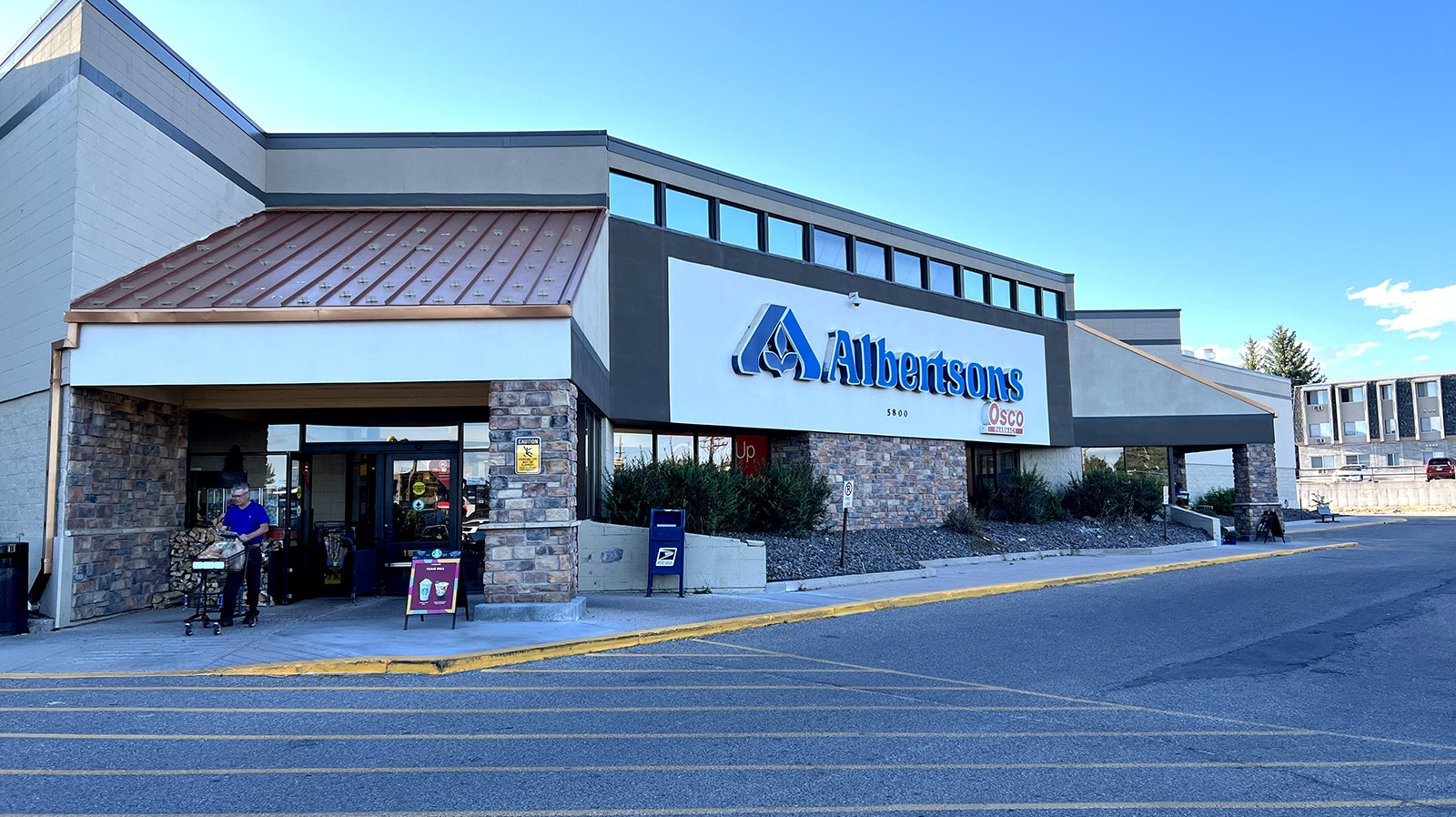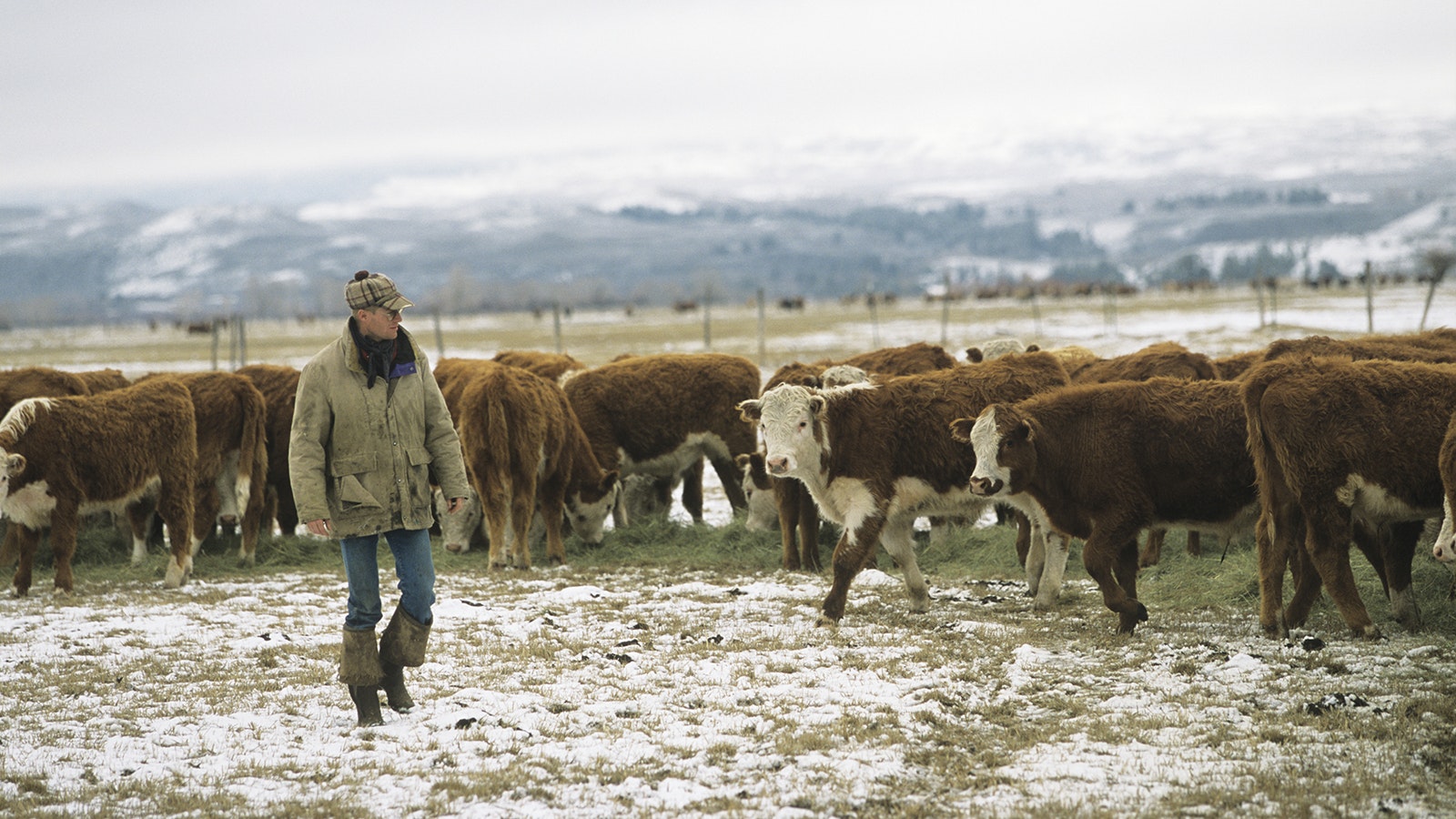Kroger and Albertsons have jointly announced the sale of 413 stores to C&S Wholesale Grocers, as well as exclusive licensing rights to the Albertsons brand in Wyoming, Colorado, California and Arizona.
Twelve stores in Wyoming will be sold as part of the $1.9 billion deal, which is being cast as a solution to antitrust concerns with a merger of the grocery giants. The location of those stores has not yet been identified.
The proposed $25 billion merger between Kroger and Albertsons would create a behemoth in the grocery store sector, with 5,000-some stores under one umbrella.
Kroger Chairman and CEO Rodney McMullen has said the deal is needed so that the combined stores can better compete with Amazon and Walmart, which have so dominated the grocery sector they can set the prices they will accept, even though they sell a wide variety of other goods.
In its second quarter earnings call Friday, McMullen said the divestiture plan they have outlined with C&S will keep the promises that Kroger has made that no Albertsons stores will close and that frontline associates will remain employed, with existing collective bargaining agreements intact.
“A critical component of the plan was to identify a well-qualified buyer who would be able to operate as a fierce competitor,” he said. “Since then, we’ve conducted a robust and thoughtful diligence process and reviewed dozens of buyers spanning from private to public, to union to non-union, domestic and international players.”
C&S meets McMullen’s criteria for a “fierce competitor,” McMullen said.
“C&S is one of the largest private companies in America today and an industry leader in wholesale grocery supply and supply chain solutions, with a strong track record as a successful grocery operator retailer,” he said.
Who is C&S?
C&S Wholesale Grocers has a footprint of more than 160 stores and company services to customers of all sizes. It supplies more than 100,000 products to 7,500 independent supermarkets, retail chain stores and military bases.
It also has an experienced management team, McMullen said, with the financial strength to not only complete the transactions, but continue to invest in the businesses for future growth.
“The divestiture plan ensures no stores will close as a result of the merger, and that all front-line associates will remain employed,” McMullen said. “C&S is also committed to honoring all collective bargaining agreements, which include industry-leading benefits and further investing for growth.”
C&S is also no stranger to the merger process. It was an FTC-approved divestiture buyer in previous grocery transactions and has a demonstrated track record when it comes to integrating union employees and collective bargaining agreements.
The sale to C&S won’t just be grocery stores, McMullen added. Included are distribution centers and teams that have strong industry experience to ensure the company has the infrastructure it needs to succeed.
“With the announcement today, we are confident that our plans fulfill all the commitments we set out in the original merger agreement,” McMullen said. “Our proposed merger with Albertsons creates meaningful and measurable benefits for America’s consumers, Kroger and Albertsons associates and communities that both Albertsons and Kroger serve.”
McMullen also said he believes this step wilhelp ensure the merger with Albertsons will remain on track to close in early 2024.
UFCW Local 7 Concerns Remain
The Albert Krogerson merger has been criticized by a number of groups, ranging from farmers and rancher associations to unions like the the UFCW Local Unions, which represents about 750 Wyoming workers who will be affected by the merger.
While Kroger and Albertsons are casting the sell-off as a bullet-proof antitrust measure, the union is not convinced the deal is a panacea for their concerns.
“Workers and shoppers have been seriously harmed by large-scale selloffs in the past, orchestrated as part of a potential merger,” according to a statement emailed to Cowboy State Daily from a coalition of UFCW presidents. “It was only in 2015 private equity-owned Haggen acquired a large number of stores as part of a divestiture scheme to appease antitrust regualtors in the Albertsons/Safeway merger.”
But it took less than a year for that company to go bankrupt and for Albertsons to then pick up all of the same stores that had been divested at a fraction of their original cost.
“Thousands of workers lost their jobs and were forced to start over,” the UFCW Local 7’s emailed statement said. “Today’s announcement of a nearly identical divestiture scheme is a troubling sign that history could repeat itself.”
Renée Jean can be reached at renee@cowboystatedaily.com.





